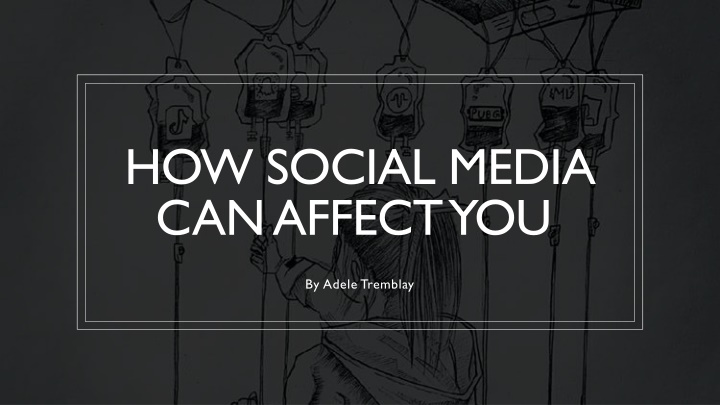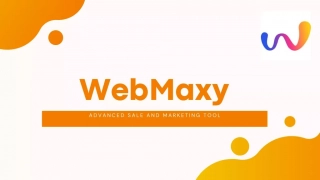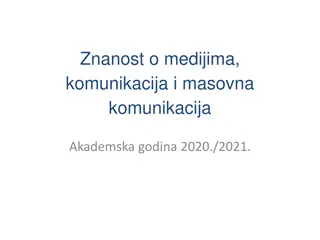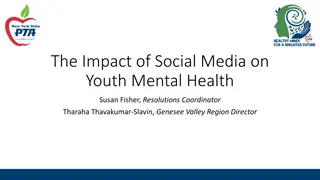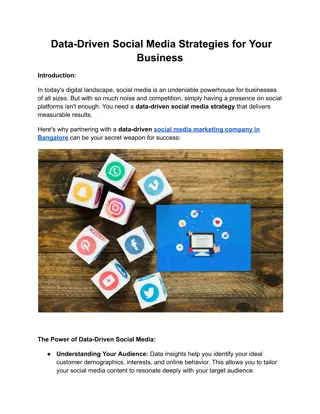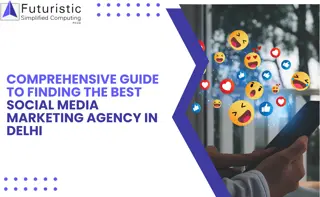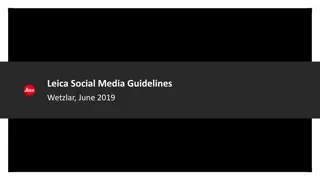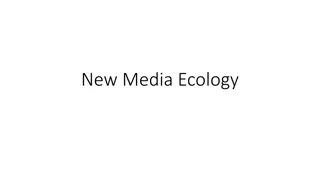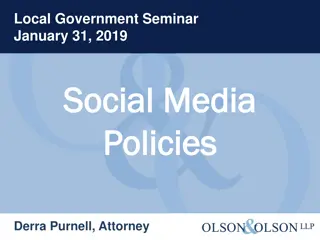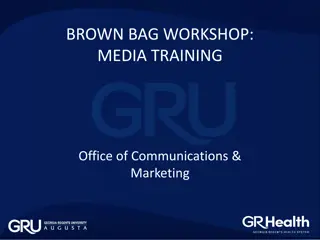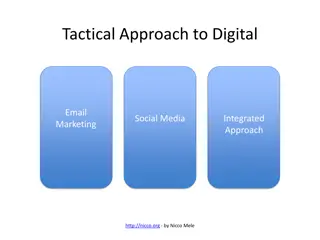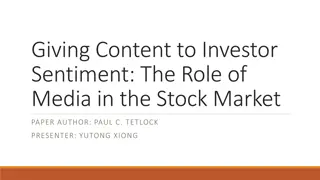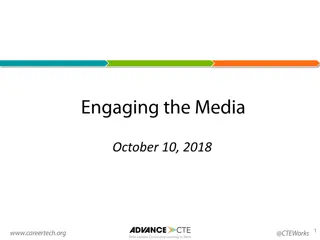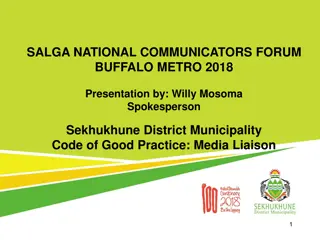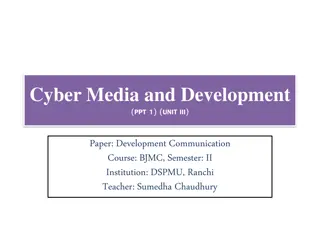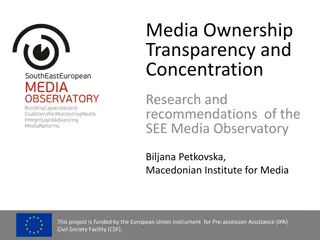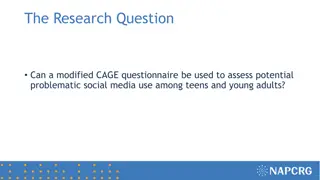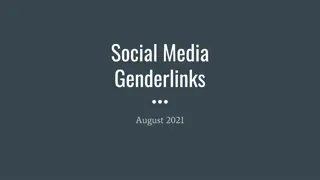HOW SOCIAL MEDIA CAN AFFECT YOU
Social media platforms have changed the way we consume and perceive information. It is crucial to research before reposting to avoid spreading false information. Additionally, online social interactions can influence youth culture, enabling faster dissemination of information but also posing risks of misinformation.
Download Presentation

Please find below an Image/Link to download the presentation.
The content on the website is provided AS IS for your information and personal use only. It may not be sold, licensed, or shared on other websites without obtaining consent from the author.If you encounter any issues during the download, it is possible that the publisher has removed the file from their server.
You are allowed to download the files provided on this website for personal or commercial use, subject to the condition that they are used lawfully. All files are the property of their respective owners.
The content on the website is provided AS IS for your information and personal use only. It may not be sold, licensed, or shared on other websites without obtaining consent from the author.
E N D
Presentation Transcript
HOW SOCIAL MEDIA CAN AFFECT YOU By Adele Tremblay
How have social media platforms changed the way we consume and understand information? If we get information from the internet and post that information without researching it, that can be problematic. You might see a headline that is interesting to you, and if you repost it without thinking, you are spreading potentially false information. For good practice you should also go on the internet and do research to make sure that the information you are reading or seeing is true.
When you see or read news on social media, do you take time to research the story further? Yes, I do research the information that I get on the internet to make sure it is correct. For example,celebrity gossip that is in the headlines is usually incorrect or twisted in some way. Another thing I find interesting is missing cases and I always investigate the sources to make sure it's true.
What value do you get from online social interactions? My opinion What I have observed from others I don't get much get value from the internet. The only people who see what I put online that is personal, are my friends and family. All of my social media platforms are private. I can understand how someone would get joy from the posting online. Felling like you are liked would make you happier, but I don't think that is a good thing. Being dependent on people you don't know for happiness isn't a good thing.
How is social media and social capital helping to form youth culture? Things can get around the internet much faster so people can know about more things. For example, there is an egg on the internet that got millions of likes just because people wanted to be funny and now it is well known. It was almost a challenge to see if it could get the most likes and it did! You can find common interests with people your own age and across the world. You can start and participate in trends easily. For example, during the Black Lives Matter movement, social media became a place for people to share information and come together to protest. But on the other hand, it can be bad because people can spread false information like with masks and the covid vaccine.
When you post online do you consider how the post may be seen by others? Yes, I do. I do not post anything that I think can get me in trouble in my future. For example, doing or saying inappropriate things cyber bullying or being racist. The way that I use the internet is by posting my photography.
Do you see any similarities between the world presented in this video and the world you live in? Yes, I do see that people can judge you on how many followers you have. For example, in the video a guy broke up with his boyfriend and people didn't like that so lots of people unfollowed him. We see this with celebrities in real life as well, they can start to lose a fan base. People are doing things now just to take pictures of them or put that activity online to get more likes and to make it seem like they live this fabulous life.You will not enjoy your life if you're doing it all for the internet.
How does themain character gain and lose points? Why are these points important to her? She gains points by posting a picture of her perfect food. The guy that broke up with his boyfriend gave out smoothies to gain points, and she gave him points, people didn't like that, so she ended up losing points. Why are points important to her? It is important to her because it is how much people like her and that matters to her and everyone else. These points would bring her joy.
What value might be derived from this type of social interaction? The way that the people talk on the video is all about their points,there is no interaction that is normal (not having to do with the points) and does not include social media. This can be true in real life as well people's conversations will not include what is happening in real life. This means that the value people get from social media is always revolving around them and not just when they are on their phones.
How are social interactions changed in the world of these clip? In the last slide, all your conversation is about social media, and it seems like we can no longer talk about our family, friends, hobbies and personal lives. Also, people will not talk to you if you do not have a lot of followers, even some jobs won't hire you if you don't have a strong social media platform.
Questions How did you analyze evidence from different perspectives? Talking to my friends and I realized that social media doesn't make a huge difference in my own perception of other people. For example,a mutual was being bullied online so instead of taking what I saw online as the truth, my friends and I spoke with the person being bullied to hear their perspective. I can see how depending what we do and don't put online affects the way people judge and perceive us. For example, nothing is really kept private in the movie clips everyone knows everything about each other's lives,but it's all filtered through the internet. How did you tell the difference between facts and interpretations, opinions and judgements? While watching the TedTalk, the woman was giving her opinion, but she referenced facts and statistics throughout, that made it more believable. For example, she referenced a statistic about how college students' mental health was affected by the internet. A lot of the audience members also agreed with what she was saying which reinforced her points.
sources Black Mirror, Nosedive, Trecho.www.youtube.com, https://www.youtube.com/watch?v=GQW6mUK2aDQ&list=PLJk1a21GKEZXxT9wwmnVle- zautJw4q12&index=2. Accessed 3 Mar. 2021. Horgan, Colin. Confusion Is the Point. Medium, 16 Oct. 2019, https://gen.medium.com/the-confusion-is-the- point-6ab1d5a933aa. Is Social Media Hurting Your Mental Health? | Bailey Parnell | TEDxRyersonU.www.youtube.com, https://www.youtube.com/watch?v=Czg_9C7gw0o. Accessed 3 Mar. 2021. Kindness May Not Deserve Kind Return.www.youtube.com, https://www.youtube.com/watch?v=tyUi6-Opzzw. Accessed 3 Mar. 2021.
THE END Thanks for reading
